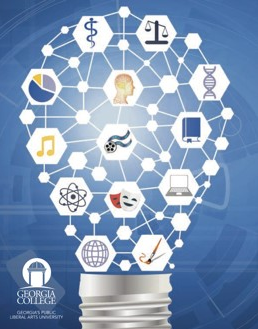The College Gate Keepers: An Analysis of College Counseling and Student College Access
Abstract
Undergraduate enrollment has increased over the years, but not all students have the same advantages in the college process. This particularly true for low-income, first-generation minority students from urban and rural high schools. As noted by Holland (2015), these students cannot always rely on their parents for college information and must instead turn to their high schools, where counselors are in a key position. Although these students are graduating more than ever, they are less likely to enroll in 4-year colleges and universities. According to Fryar and Hawes (2011), "minority students graduate high school at much lower rates than do white students, often graduate from schools that offer fewer opportunities in terms of college preparation, and come from families that have fewer financial resources, less information about the college process, and lower expectations” (p. 84). For most, counselors are the gatekeepers. Research finds that when students and counselors can connect, counselors have the potential to become empowering agents (Holland 2015). The role of a successful counselor and student relationship can be a form of social capital. In collaboration with two local high schools, one public and the other private, we will investigate the relationship between counselors and students and how these relationships influence a student’s college application process. This study will be conducted by randomly selecting five to eight students from each grade and completing focus group interviews with high school students from every grade as well as interviews with the school’s counseling faculty and staff. Through the lens of social capital and pipeline theory, we explore key findings in the counselor and student relationship in connection with student access and success in the college application process.
The College Gate Keepers: An Analysis of College Counseling and Student College Access
Undergraduate enrollment has increased over the years, but not all students have the same advantages in the college process. This particularly true for low-income, first-generation minority students from urban and rural high schools. As noted by Holland (2015), these students cannot always rely on their parents for college information and must instead turn to their high schools, where counselors are in a key position. Although these students are graduating more than ever, they are less likely to enroll in 4-year colleges and universities. According to Fryar and Hawes (2011), "minority students graduate high school at much lower rates than do white students, often graduate from schools that offer fewer opportunities in terms of college preparation, and come from families that have fewer financial resources, less information about the college process, and lower expectations” (p. 84). For most, counselors are the gatekeepers. Research finds that when students and counselors can connect, counselors have the potential to become empowering agents (Holland 2015). The role of a successful counselor and student relationship can be a form of social capital. In collaboration with two local high schools, one public and the other private, we will investigate the relationship between counselors and students and how these relationships influence a student’s college application process. This study will be conducted by randomly selecting five to eight students from each grade and completing focus group interviews with high school students from every grade as well as interviews with the school’s counseling faculty and staff. Through the lens of social capital and pipeline theory, we explore key findings in the counselor and student relationship in connection with student access and success in the college application process.


